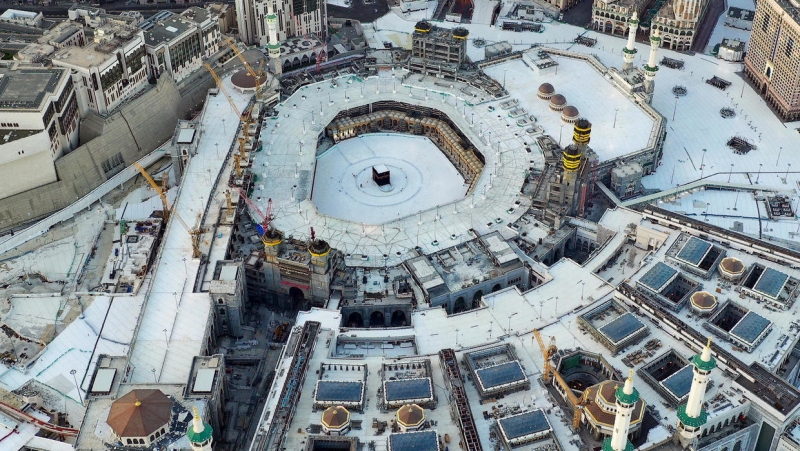Saudi relaxes lockdown, ramps up virus testing
Riyadh
Saudi Arabia announced yesterday a $265 million deal with a Chinese firm to ramp up coronavirus testing as the kingdom eased a 24- hour curfew, except in hotspots including Islam’s holy city of Mecca. The agreement with China’s Beijing Genome Institute (BGI) will provide for nine million COVID-19 tests, the government said in a statement. It said in line with the agreement “500 experts, specialists, and technicians” would come from China to conduct the tests.
The deal, which has a total value of 995 million riyals, also includes “the establishment of six large regional laboratories in a number of areas in the kingdom, including a mobile laboratory with a production capacity of 10,000 tests daily”, it added. Earlier the government decided to relax a nationwide curfew between 9am and 5pm, with malls and retailers allowed to reopen until May 13, according to the official Saudi Press Agency. But a round-the-clock lockdown will be maintained in some areas including Mecca, where the highest number of infections have been recorded in recent days despite the city being sealed off. Many countries around the Middle East and North Africa have the easing of lockdown restrictions to coincide the holy fasting month of Ramadan which began on Friday.
Saudi Arabia, which has reported the highest number of infections in the Arab world, is scrambling to limit the spread of coronavirus at home. On Sunday, the health ministry said the number of deaths from COVID-19 had risen to 139, confirmed infections to 17,522 while 2,357 people have recovered. Last month, Saudi Arabia suspended the year-round “umrah” pilgrimage over fears of the coronavirus pandemic spreading in Islam’s holiest cities.
Authorities are yet to announce whether they will proceed with this year’s hajj, scheduled for the end of July, but they have urged Muslims to temporarily defer preparations for the annual pilgrimage. Last year, some 2.5 million faithful travelled to Saudi Arabia from across the world to participate in the hajj, which Muslims are obliged to perform at least once during their lifetime. The Arab world’s biggest economy has also closed cinemas, malls and restaurants and halted flights as it attempts to contain the virus. King Salman has warned of a “more difficult” fight ahead against the virus, as the kingdom faces the economic impact of virus-led shutdowns and crashing oil prices.
Related Posts

